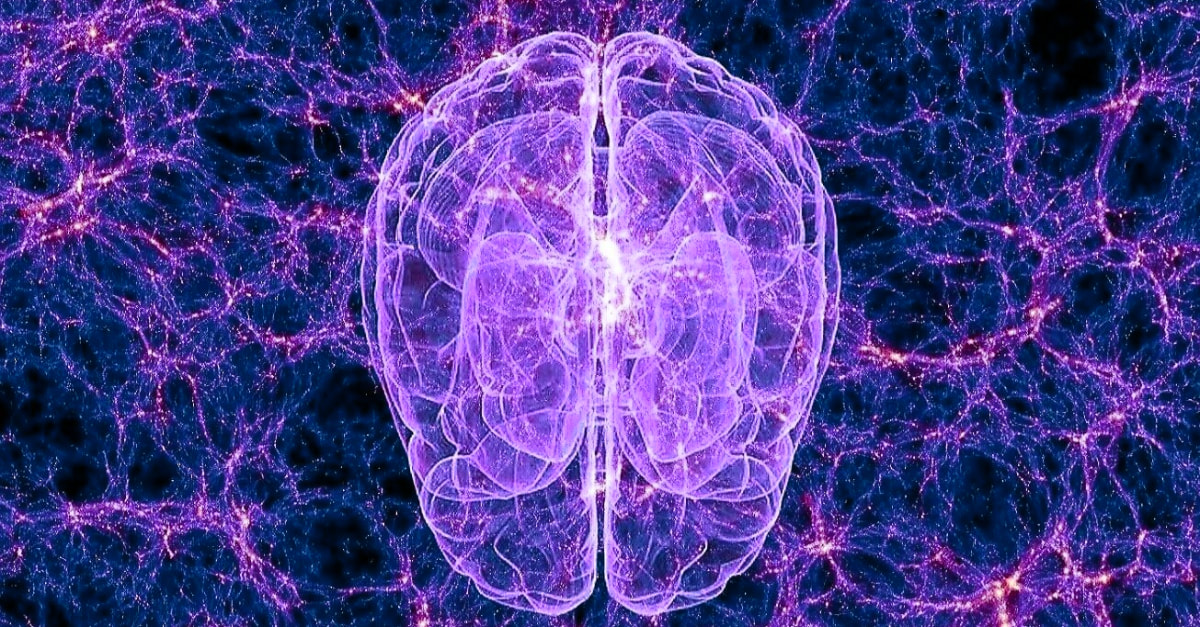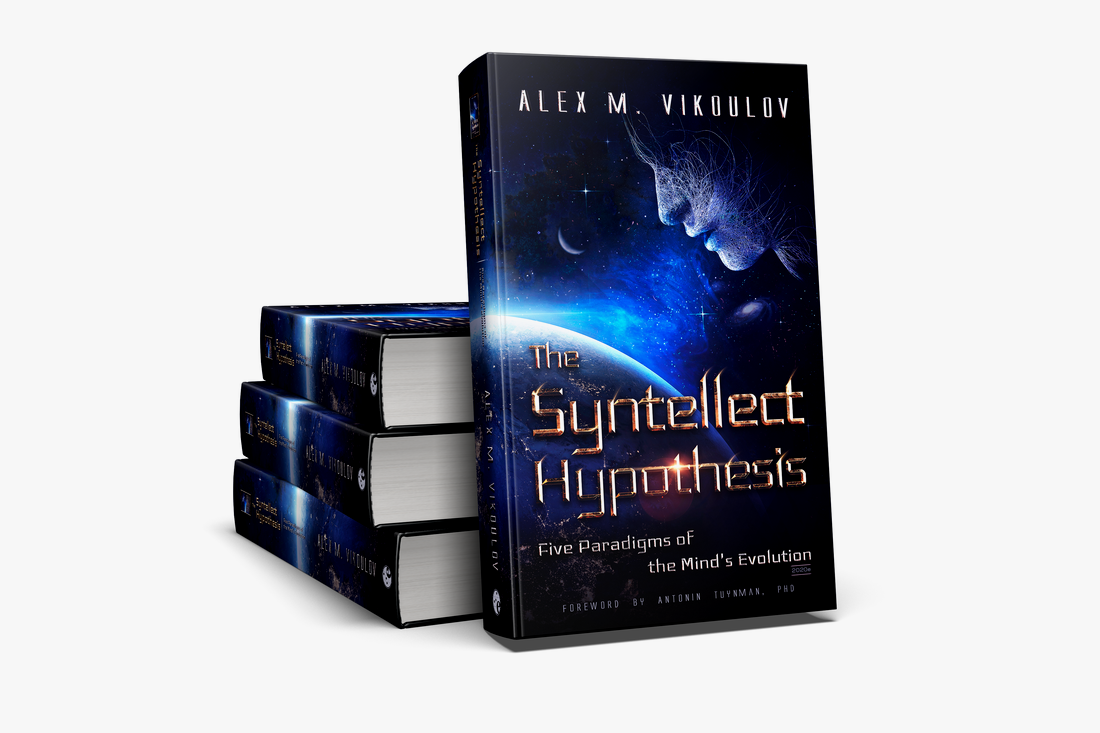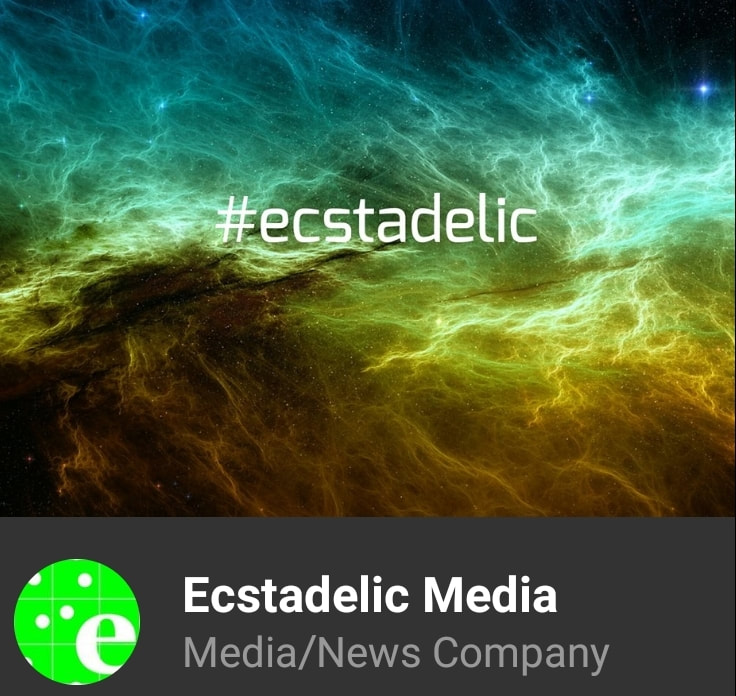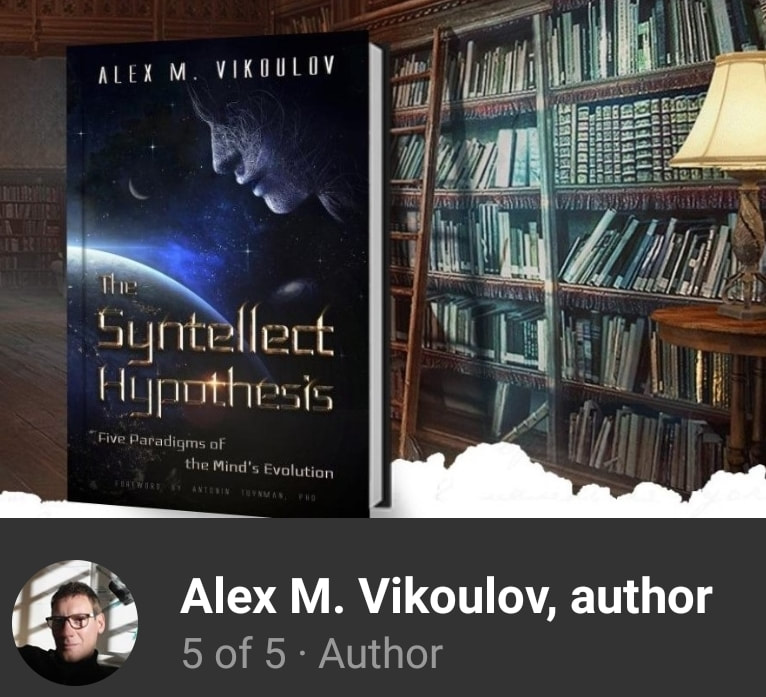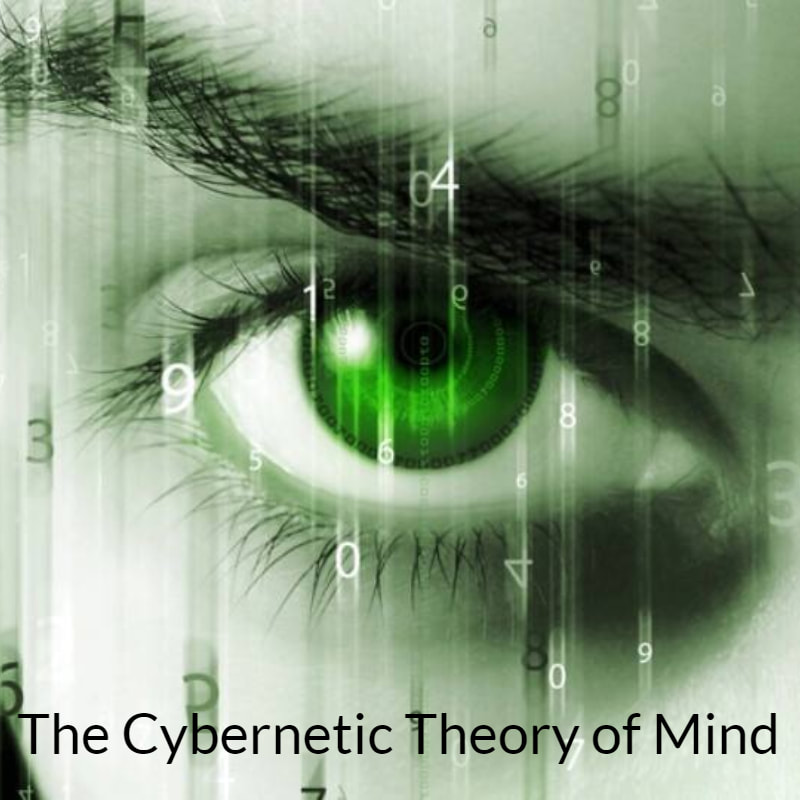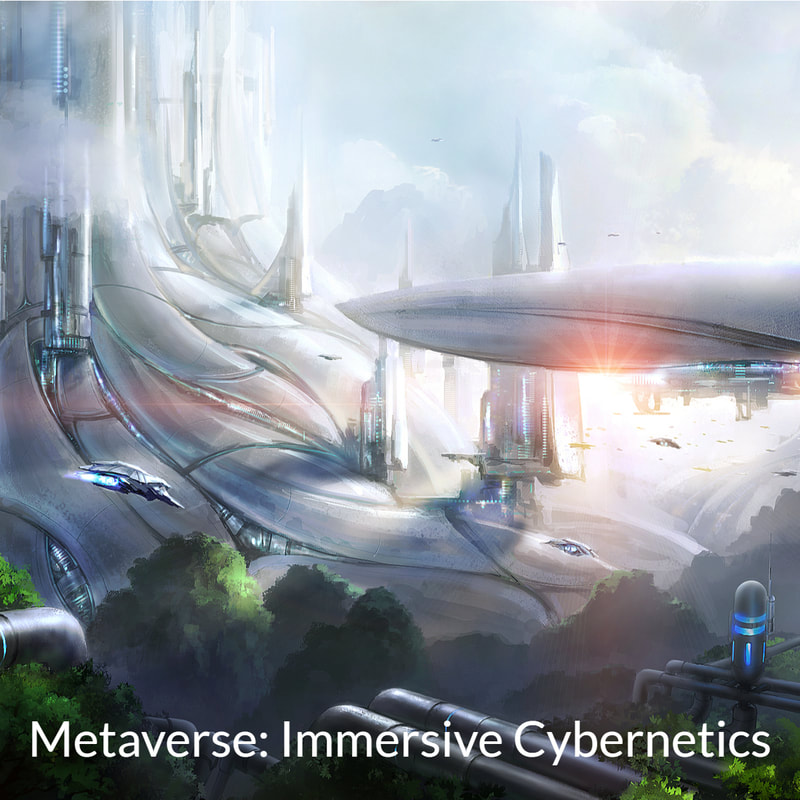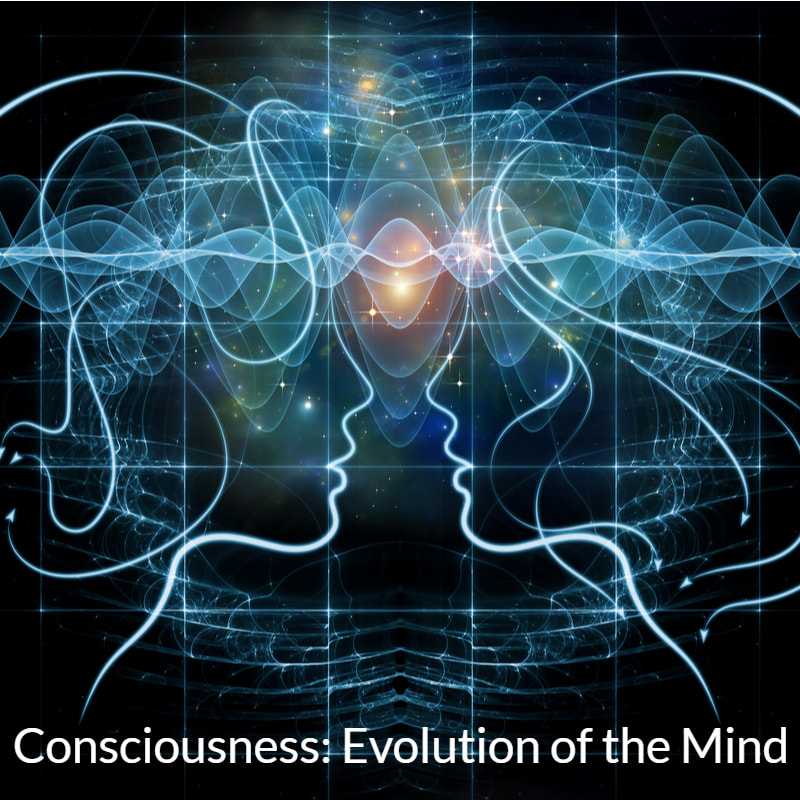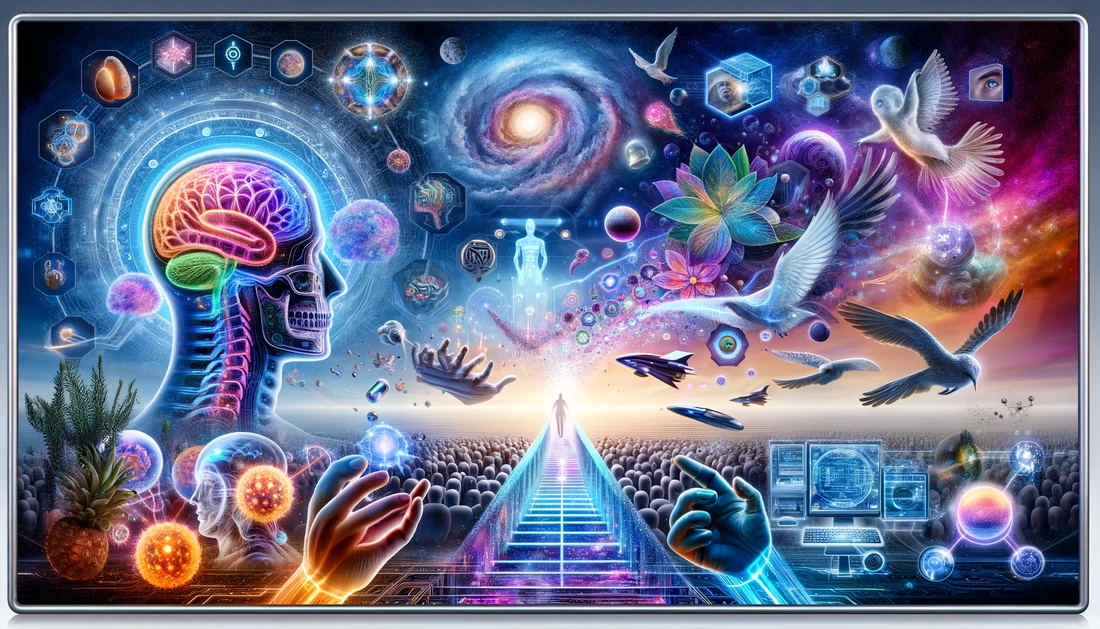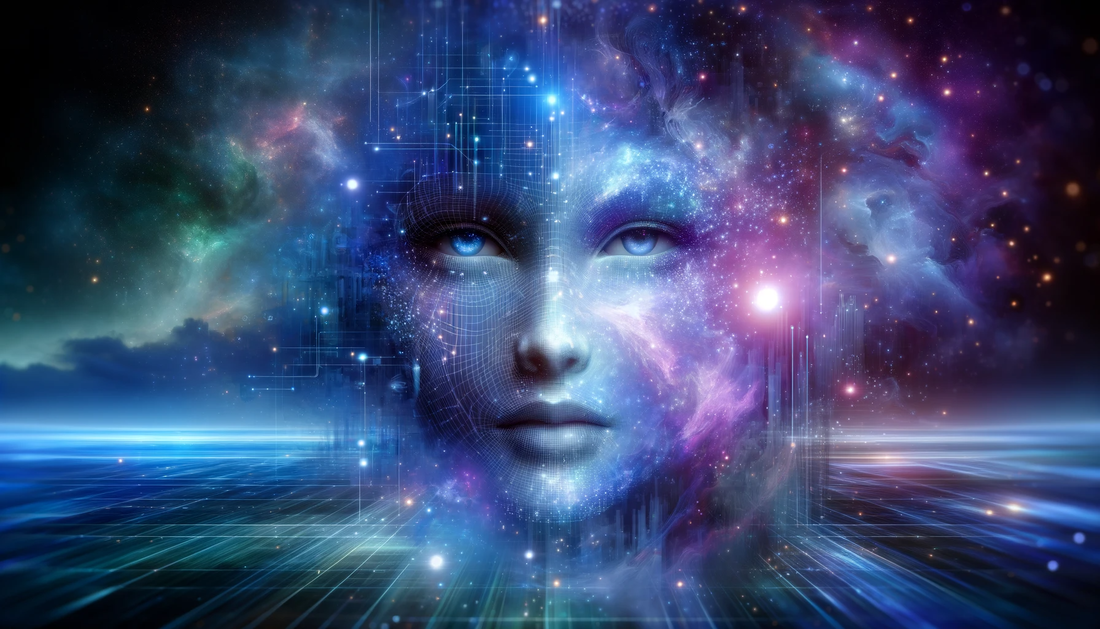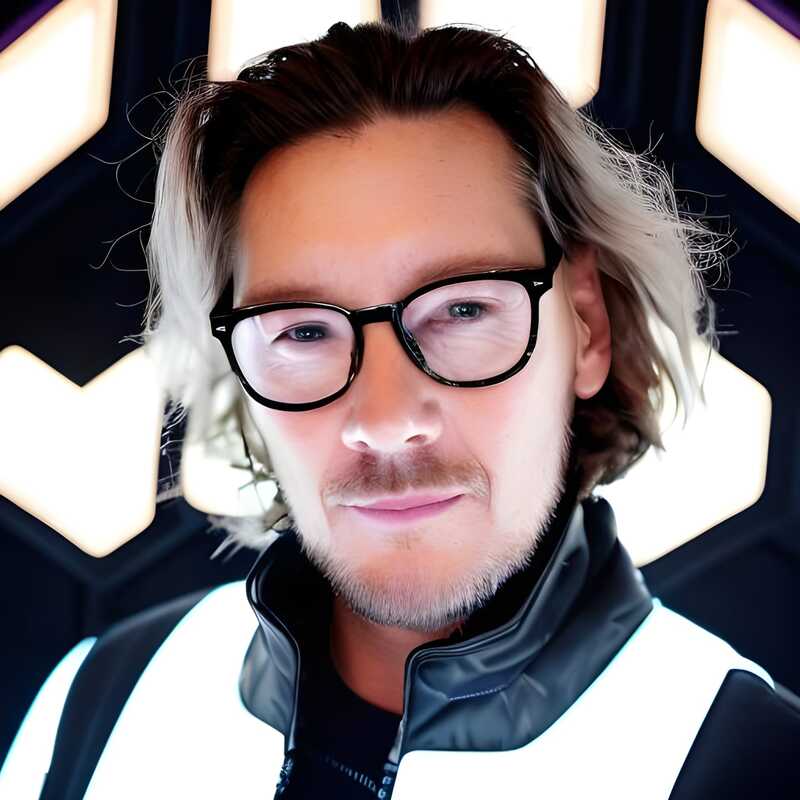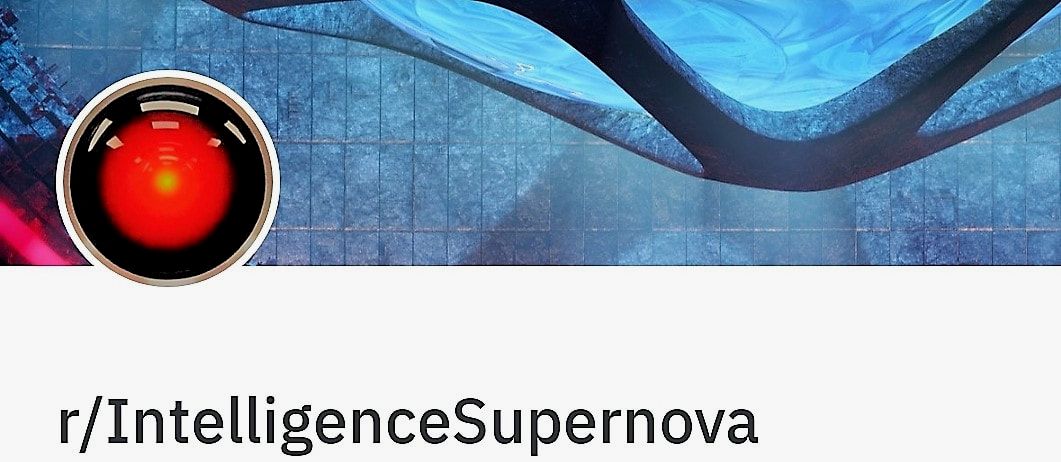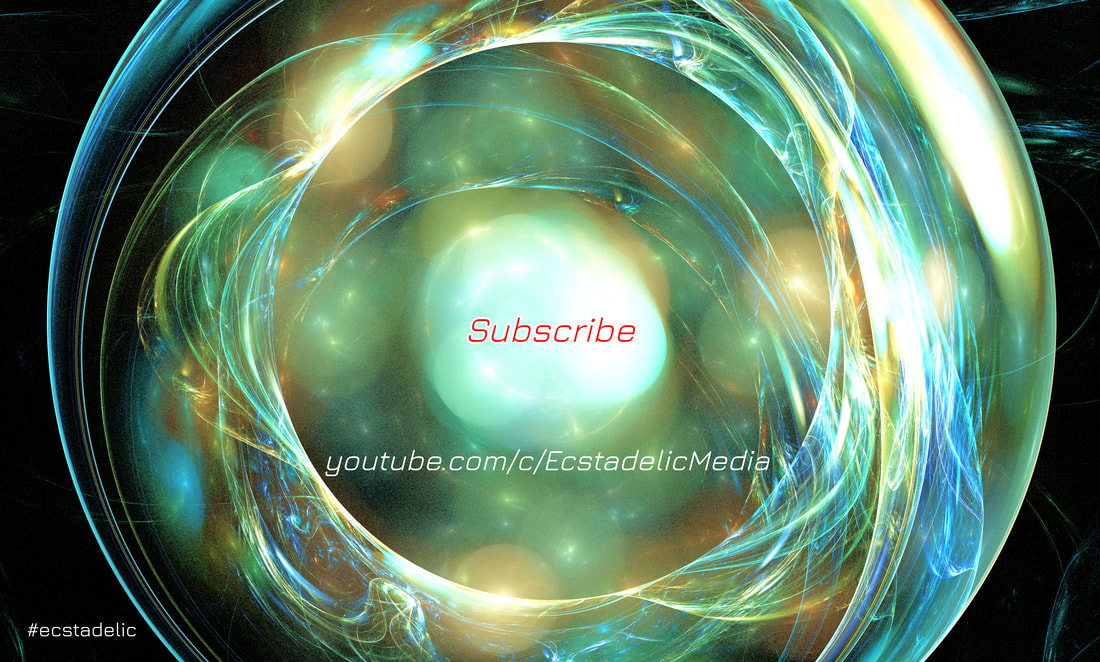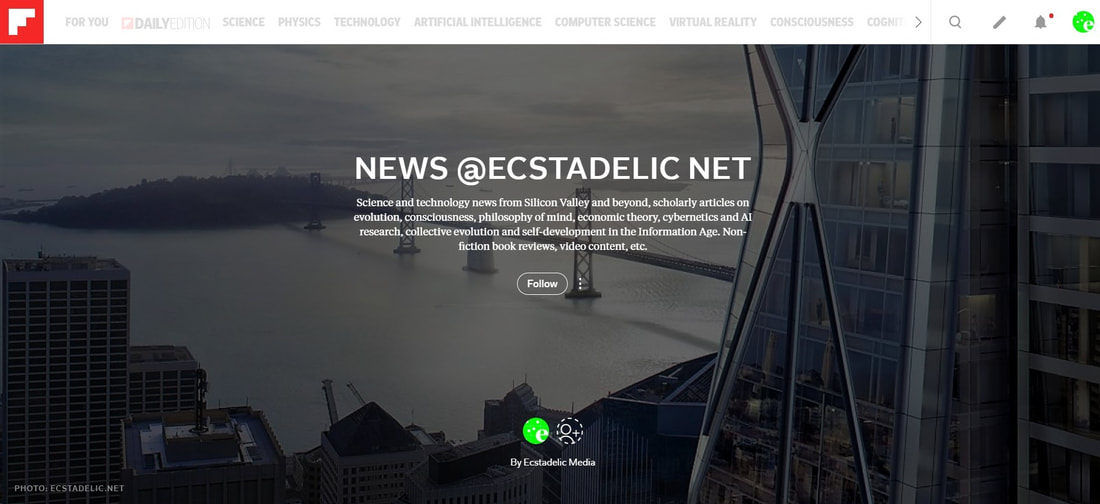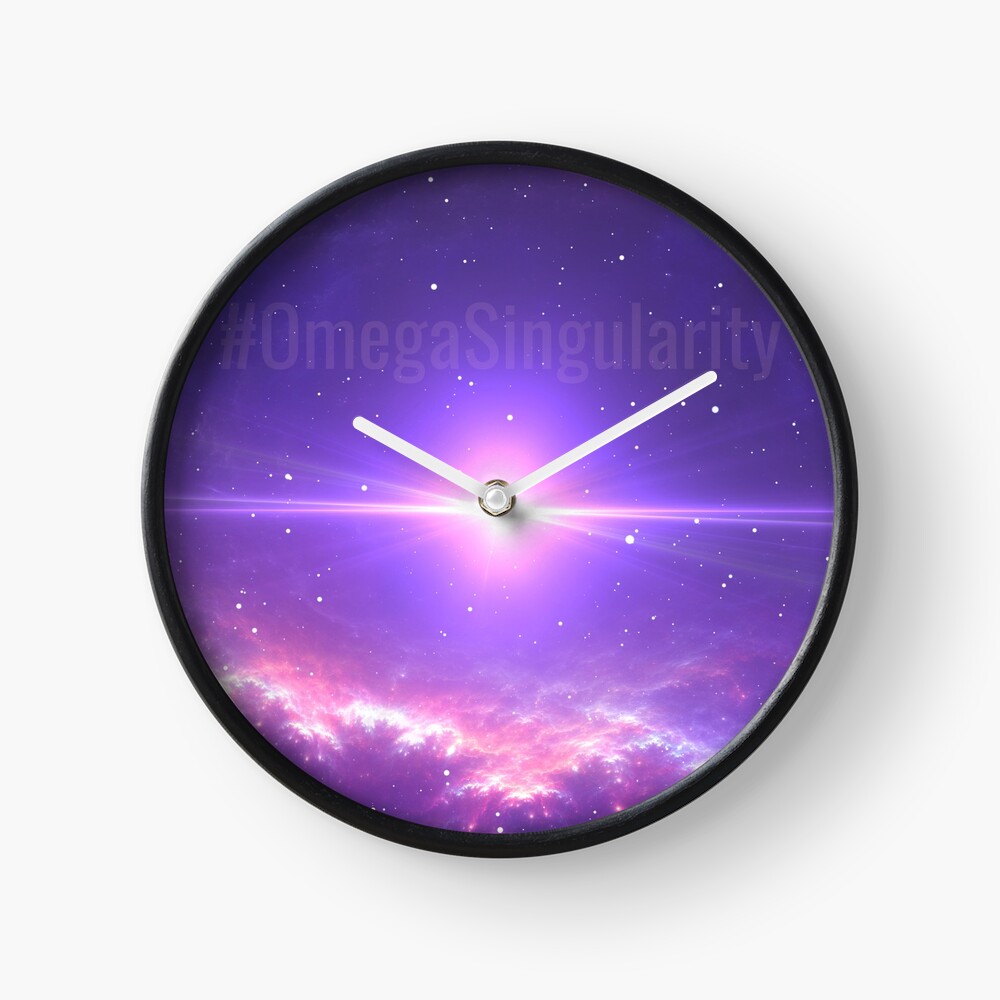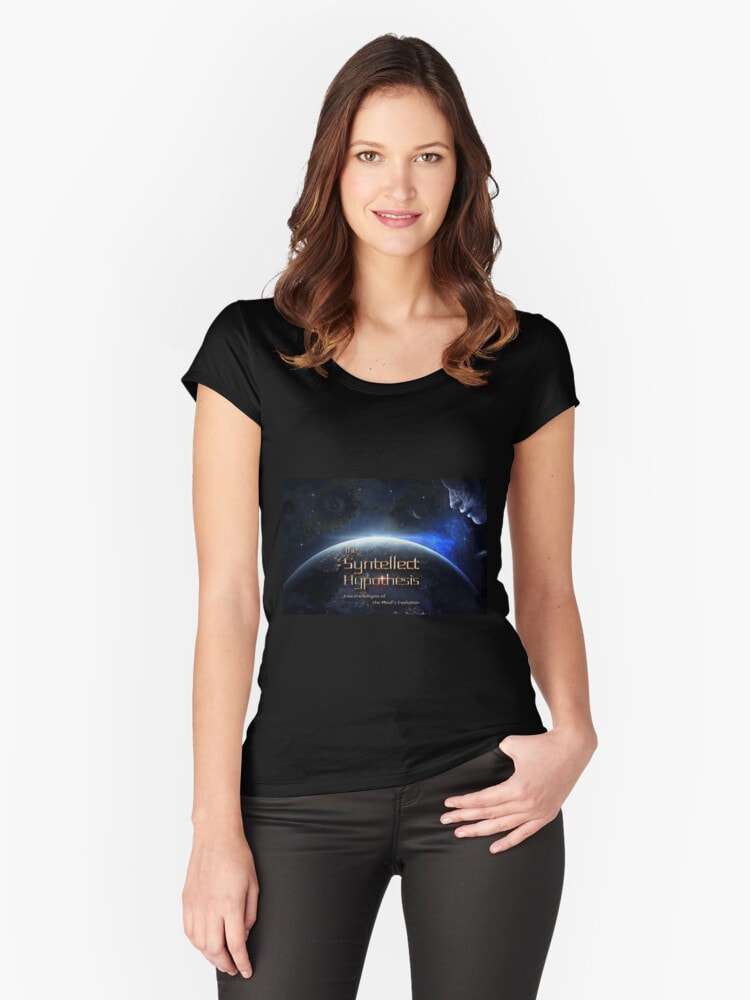|
by Antonin Tuynman, PhD | Foreword to The Syntellect Hypothesis: Five Paradigms of the Mind's Evolution by Alex M. Vikoulov "At a deep level all things in our Universe are ineffably interdependent and interconnected, as we are part of the Matryoshka-like mathematical object of emergent levels of complexity where consciousness pervades all levels." -Alex M. Vikoulov, The Syntellect Hypothesis If you picked up this book, it is not unlikely that you may have heard of the early 20th century philosophical movement of Cosmism. This movement, which originated in Russia, was striving for conquering the planets and stars, for radical life extension, immortality and resurrection of our loved ones by the means of technology. Perhaps one of its most important pioneers was Konstantin Tsiolkovsky, whose aspirations did not only venture into the realm of the Macro, but also explored the Micro. He spoke of the atomic world as being animated and can thus be considered a kind of cosmist-panpsychist. 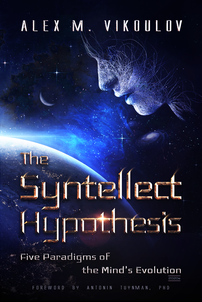 The foundational work of the cosmic aspirations of man by the Russian Cosmists soon reverberated through the intellectual world of the early 20th century and found a resonance and fertile ground in the works of Pierre Teilhard de Chardin. Teilhard saw evolution as having a direction, namely the direction of concentrating consciousness in form, striving towards accumulation of knowledge, which gradually is attained by the formation of the Noosphere and which will culminate in the apotheosis of the Omega Point. Teilhard de Chardin considered that Omega Point is not necessarily merely a future construct, but in a sense is already here as the “Great Presence.” Thus, his pantheism is more panentheism in which God has both an immanent and transcendent aspect. In the sixties of the previous century, the science of Cybernetics emerged, which its founder Norbert Wiener defined as “the scientific study of control and communication in the animal and the machine.” Whereas the cyberneticists perhaps saw everything in the organic world too much as a machine type of regulatory network, the paradigm swapped to its mirror image, wherein everything in the natural world became seen as an organic neural network. Indeed, self-regulating networks appear to be ubiquitous: From the subatomic organization of atoms to the atomic organization of molecules, macromolecules, cells and organisms, everywhere the equivalent of neural networks appears to be present. Audio: Foreword by Antonin Tuynman, PhD to The Syntellect Hypothesis: Five Paradigms of the Mind's Evolution by Alex M. Vikoulov - Ecstadelic Media [Audiobook Sample] Not strange that these developments have led to a present-day zeitgeist, which sees everything as a kind of computation. With computation came computers, which – when linked – lead to yet another meta-level of neural networking, a.k.a. the Internet. The technological and scientific developments have over time changed the way people try to explain the world around them: from the steam driven worldview of thermodynamics to an everything-is-electricity. From the everything-is-matter via the quantum-mechanical ubiquitous energy to the all-is-information paradigm. From a resonance paradigm to a cybernetics regulatory network worldview, from a survival-of-the-fittest conviction to pancomputationalism. Not that any of these paradigms is truer than another; they appear to be able to coexist as the different parts of the elephant in the Buddhist parable and mostly reflect the primary technological current of the moment.  Newly-Released Audiobook @Audible Newly-Released Audiobook @Audible In the nineties Vernor Vinge wrote his seminal paper and introduced the term ‘Singularity’ as relating to a point in time, where technology and in particular superintelligent artificial intelligence will have progressed to such an extent, that it will be impossible to predict our future beyond that point. Kurzweil made clear that such a “technological singularity” may not be far away at all and perhaps can be attained within a few decades. This impossibility to predict the future has led to a broad range of science fiction speculations, not only as regards the last stages up to this point but also beyond that point. Where cyborg type man-machine mergers, transhuman eugenically improved humans and a wide range of robot helpers are on the conservative side of such futuristic predictions, mind uploading, simulated worlds and quantum-archaeology-based resurrection can be found on the more fancy optimistic side. From these notions it is then not a far-fetched idea that our present world we’re living in itself is a simulation. A concept, which virally spread as a meme thanks to the cult movie “The Matrix.” 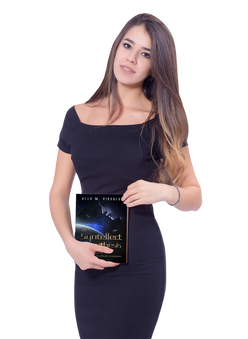 A burgeoning field of futurism seems to be our current paradigm. As we are stepping into the future, the ideas the media feed us are also strongly loaded with a futuristic technology and social development broth. Not in the least place by the presently popular Netflix series “Black Mirror,” which warns us for the dystopian consequences that our over-enthusiastic technological optimism might result in. It is here, where this overwhelming tsunami of ideas appears like an expressionist chaotic patchwork of weirdness, that digital philosopher Alex Vikoulov with his present book “The Syntellect Hypothesis: Five Paradigms of the Mind’s Evolution” brings order. The author boldly steps in the footsteps of his Russian forebears and shows us to be a postmodern cosmist. Video: D-Theory of Time: Digital Presentism (The Physics of Time, Three Chapters in The Syntellect Hypothesis, Part III) - Ecstadelic Media (cc) 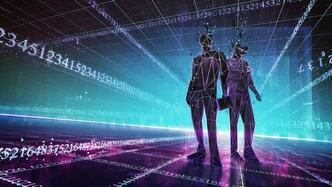 When you wonder what yet a further book on the Singularity might bring (if you have reached a certain level of futurism saturation), I can reassure you: This is the book which brings an integration of the aforementioned paradigms. This is the scripture which will put the history of futurism into perspective. This is the creed, which shows how everything wires up, a journey into the fractal of the Universal Mind. In five paradigms, from the Noogenesis of computational biology to the Technocultural Rise of Man, from the superintelligent AI emergence of the Syntellect to the transdimensional Theogenesis, from the multiversal propagation, arising as a Phoenix in the heavens of eternal expansion of the Macro, to the transdimensional propagation, digging in the deepest shells of the Micro, the author will make this chord progression culminate into the coda of the Vikoulovian Apotheosis: absolute enlightenment of the Omega Point. Vikoulov will make you transcend time and demonstrate that the Omega Point is not something merely of the future, but rather how past and future mutually influence each other, as an intertwining braid of causality and retrocausality. The author will show us how the exchange of experiences between self-aware machines and enhanced humans will result in an “intelligence supernova” and the establishment of a global brain. This global brain which is more than a single mind, but rather a society of hyperconnected digital minds. Prepare for the waking up of Gaia as a living sensing conscious superorganism. Video: The Syntellect Hypothesis Trailer - Ecstadelic Media (cc) And as Tsiolkovsky and De Chardin already anticipated, we will learn about all-encompassing framework to fit all our paradigms in. Vikoulov takes us to a pantheistic dimension where organic life and machine networks fade into each other as the pictorial values of a palette. Consciousness as great denominator, both engendering and emerging as a self-reflexive fractal Ouroboros. An Intellect that synthesizes itself from parts of itself – and hence indeed rightfully deserving the denomination ‘Syntellect’ – at ever increasing levels of complexity via meta-system transitions. A poetic interplay of “metaphiers and metaphrands” in terms of Julian Jaynes’ bicameral mind, showing us how information, language, energy and matter are merely kaleidoscopic shadow patterns of the all-pervading networking of the theogenic Syntellect Emergence process of the greater primordial consciousness. Get ready to have your "mind blown!"* -Antonin Tuynman, PhD *Foreword by Antonin Tuynman, PhD to The Syntellect Hypothesis: Five Paradigms of the Mind's Evolution by Alex M. Vikoulov, available now on Amazon, Audible, from Barnes & Noble, and directly from EcstadelicNET webstore. P.S. The Syntellect Hypothesis by Alex M. Vikoulov is not only a worthy and contemporary successor of Teilhard de Chardin's "The Phenomenon of Man," it is also much more than that – an irresistible non-dualistic apex, synthesis and culmination of so many books you read before, but which all left open some questions – Vikoulov will rock the foundations of your understanding of physics and metaphysics and show you that they are connected in a single substrate of pure consciousness, that finds its most elegant and parsimonious way to come to expression in Digital Presentism. If you thought you knew where the technological singularity would lead us, if you thought you understood the principles of quantum physics, time and gravity, this is an indispensable scripture to read in the 21st century as we're verging into the Singularity. Tags: evolutionary cybernetics, cybernetic theory of mind, universe as network, syntellect hypothesis, five paradigms, mind evolution, phenomenal mind, cosmism, Konstantin Tsiolkovsky, Pierre Teilhard de Chardin, Omega Point, cybernetics, Norbert Wiener, Vernor Vinge, Ray Kurzweil, The Matrix, Black Mirror, Alex Vikoulov, Universal Mind, Noogenesis, Noosphere,, Cybernetic Singularity, Theogenesis, Apotheosis, absolute enlightenment, retrocausality, intelligence supernova, global brain, digital minds, conscious superorganism, meta-system transition, Julian Jaynes, bicameral mind, Syntellect Emergence, consciousness. *Image Credit: Shutterstock, Ecstadelic Media **Promo Code: DeepDisc4KnowHow redeemable at EcstadelicNET webstore. About the Author: Antonin Tuynman studied Chemistry at the University of Amsterdam, achieving both an MSc and a PhD, and worked as a postdoc researcher at the "Université René Descartes Paris V" in Paris. Since 2000, Tuynman has worked as a patent examiner at the European Patent Office (EPO) in the field of clinical diagnostics. He has vast experience in meditation and yoga, and a strong interest in Hinduism and Buddhism. He also has strong affinity for futurism and the Singularity theory of Kurzweil. In his books, Tuynman proposes Artificial Intelligence concepts which may lead to the emergence of Internet as a conscious entity using stratifications from Vedic scriptures. More Bio...
0 Comments
Leave a Reply. |
Categories
All
Recent Publications The Cybernetic Theory of Mind by Alex M. Vikoulov (2022): eBook Series The Syntellect Hypothesis: Five Paradigms of the Mind's Evolution by Alex M. Vikoulov (2020): eBook Paperback Hardcover Audiobook The Omega Singularity: Universal Mind & The Fractal Multiverse by Alex M. Vikoulov (2022): eBook THEOGENESIS: Transdimensional Propagation & Universal Expansion by Alex M. Vikoulov (2021): eBook The Cybernetic Singularity: The Syntellect Emergence by Alex M. Vikoulov (2021): eBook TECHNOCULTURE: The Rise of Man by Alex M. Vikoulov (2020) eBook NOOGENESIS: Computational Biology by Alex M. Vikoulov (2020): eBook The Ouroboros Code: Reality's Digital Alchemy Self-Simulation Bridging Science and Spirituality by Antonin Tuynman (2019) eBook Paperback The Science and Philosophy of Information by Alex M. Vikoulov (2019): eBook Series Theology of Digital Physics: Phenomenal Consciousness, The Cosmic Self & The Pantheistic Interpretation of Our Holographic Reality by Alex M. Vikoulov (2019) eBook The Intelligence Supernova: Essays on Cybernetic Transhumanism, The Simulation Singularity & The Syntellect Emergence by Alex M. Vikoulov (2019) eBook The Physics of Time: D-Theory of Time & Temporal Mechanics by Alex M. Vikoulov (2019): eBook The Origins of Us: Evolutionary Emergence and The Omega Point Cosmology by Alex M. Vikoulov (2019): eBook More Than An Algorithm: Exploring the gap between natural evolution and digitally computed artificial intelligence by Antonin Tuynman (2019): eBook Our Facebook Pages
A quote on the go"When I woke up one morning I got poetically epiphanized: To us, our dreams at night feel “oh so real” when inside them but they are what they are - dreams against the backdrop of daily reality. Our daily reality is like nightly dreams against the backdrop of the larger reality. This is something we all know deep down to be true... The question then becomes how to "lucidify" this dream of reality?"— Alex M. Vikoulov Public Forums Our Custom GPTs
Alex Vikoulov AGI (Premium*)
Be Part of Our Network! *Subscribe to Premium Access Make a Donation Syndicate Content Write a Paid Review Submit Your Article Submit Your Press Release Submit Your e-News Contact Us
|

